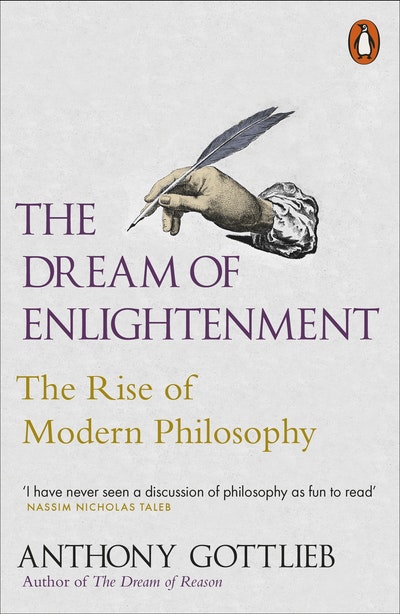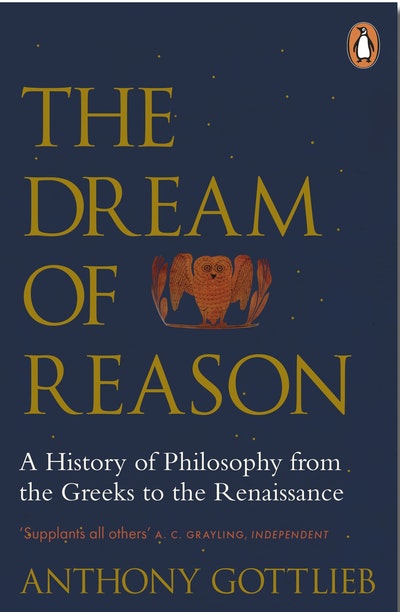- Published: 16 October 2017
- ISBN: 9780141000664
- Imprint: Penguin Press
- Format: Paperback
- Pages: 320
- RRP: $26.99
The Dream of Enlightenment
The Rise of Modern Philosophy
- Published: 16 October 2017
- ISBN: 9780141000664
- Imprint: Penguin Press
- Format: Paperback
- Pages: 320
- RRP: $26.99
Wondrously perceptive and exceptionally well-written
Edward O. Wilson
An entertaining introduction to a range of daring thinkers of the long Enlightenment from Descartes to Rousseau. The author has a light touch, and his book is a joy to read. He manages to convey the excitement of ideas, and the humanity of thinkers, without swamping readers with complexity.
Economist
Vivid and illuminating ... a compact but fairly comprehensive survey, along with much historical detail ... Gottlieb's highly readable book can be recommended as an engaging personal introduction to some of our most brilliant moral and intellectual ancestors.
Thomas Nagel, New York Review of Books
He wears his learning lightly with an engaging and entirely comprehensible sequence of crystal-clear paragraphs. ... His prose is as witty as it is punctilious, peppered with clever, memorable lines. ... Because Gottlieb does not take an excessively idealistic view of the power of reason, he is able to put the achievements of the thinkers in this book in their place, neither exaggerating nor diminishing them.
Julian Baggini, Financial Times




